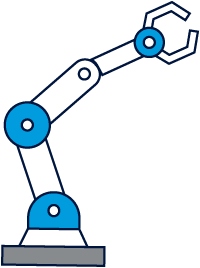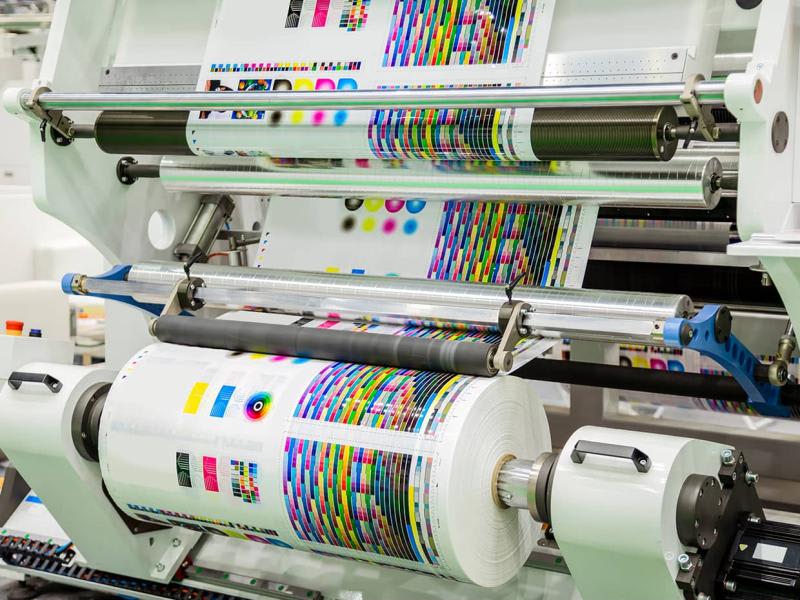Australia’s manufacturing sector stands at a pivotal moment as it grapples with skills shortages, digital transformation, and escalating global competition.
The Australian manufacturing industry is essential for driving economic growth and fostering innovation, yet many manufacturers are struggling to find and retain skilled workers, particularly in advanced technology areas. To stay competitive in this rapidly evolving landscape, businesses must adapt and invest in workforce development.
Australian manufacturers are facing unique workplace problems that need new solutions. Skill gaps and the urgent need for digital upgrades pose significant hurdles for manufacturing companies nationwide.
In this article, we will explore the key challenges and opportunities related to addressing workforce shortages, upskilling employees, and encouraging collaboration within the industry. We will also provide practical advice aimed at helping Australian manufacturers navigate these issues, enabling them to emerge stronger and more resilient in the process.
Tackling the skills shortage in Australian manufacturing
Australian manufacturers are facing significant challenges such as a shortage of skilled workers, reluctance to embrace change, and the high expenses linked with training and implementing advanced manufacturing technologies. Some businesses are hesitant to adopt these technologies due to a lack of knowledge, but organisations like RSM Australia are actively working to address this issue through educational programs.
Among the roles that companies struggle to fill are those demanding expertise in advanced technology, including robotics engineers, data analysts, and industrial automation specialists. Additionally, there is a noticeable scarcity of skilled tradespeople essential for the maintenance and operation of sophisticated manufacturing systems, such as CNC machinists and industrial engineers.
To combat these obstacles, industry players are increasingly focusing on upskilling their workforce and investing in training programs to meet the demands of modern manufacturing practices. By bridging the skills gap and promoting technological advancements within the sector, Australian manufacturers can enhance their competitiveness on a global scale.
Upskilling and industry collaboration
To effectively tackle the challenges facing the manufacturing sector today, it is essential to prioritise technical training in key areas such as robotics, artificial intelligence, cybersecurity, and data analytics. As technology rapidly evolves, manufacturers must also implement continuous learning initiatives to ensure that their employees are well-informed about the latest trends and advancements in these fields.
Manufacturers can also benefit from forging stronger partnerships with educational institutions. By influencing curriculum development, offering apprenticeships, and engaging in collaborative research and development (R&D) projects, manufacturers can ensure a skilled workforce that is aligned with industry demands. This collaboration fosters innovation and helps address skill gaps, ultimately supporting the long-term success of the manufacturing sector.
The value of continuous learning
Modern technology is constantly changing, making continuous learning essential for survival. The manufacturing workforce must be prepared to embrace new technologies and adapt to various production methods. Organisations that foster a culture of ongoing learning enable their employees to remain flexible and competitive.
Training programs, workshops, and online courses are crucial in keeping the workforce informed about the latest industry trends and technologies. Furthermore, encouraging employees to obtain certifications in their areas of expertise demonstrates a commitment to their development, benefiting the entire organisation.
A workplace that values continuous learning enhances employee satisfaction, resulting in increased productivity and reduced turnover rates.
Embracing automation and technology
Some people view automation as a threat to jobs, but it is essential for Australian manufacturers to remain competitive in the global market. Automation can speed up processes, enhance efficiency, and improve product quality. These benefits increase productivity and reduce costs, enabling Australian manufacturers to compete more effectively worldwide.
At RSM Australia, our CFO Advisory team is dedicated to providing tailored support to our manufacturing clients. By collaborating closely with our ERP solution teams, we thoroughly review and enhance existing manufacturing processes, leading to increased efficiency and productivity.
As you navigate the complex landscape of digital transformation, it is imperative for Australian manufacturers to not only embrace new technologies but also to strengthen cybersecurity measures. This dual approach helps safeguard sensitive information and maintain operational integrity.
It is also important for manufacturers to receive in-depth analysis and strategic recommendations tailored specifically to their unique business needs. Our team can provide insights that address specific challenges and opportunities within their operations.
Identifying opportunities for automation
Business leaders should actively look for areas in their operations where automation can help the most. Instead of thinking of automation as taking away jobs, see it as a way to boost what people can do.
Here are some key areas where automation can significantly benefit manufacturers:
Repetitive tasks: Manufacturing often involves repetitive manual work that can be easily automated. This frees up workers to engage in more complex and valuable tasks.
Data analysis: AI can manage large volumes of data, providing insights into production efficiency, quality control, and maintenance preparation.
Quality control: Automated systems can enhance the accuracy and consistency of quality checks, helping to reduce errors and ensure high product quality.
By strategically implementing automation in these areas, manufacturers can relieve employees of monotonous tasks, allowing them to concentrate on higher-value work that requires creativity, problem-solving, and innovation.
Overcoming barriers to adoption
Many manufacturers recognise the benefits of automation, but they often struggle with its implementation. The challenges typically stem from high initial costs, concerns about job loss, and the perception that new technologies are difficult to integrate with existing systems.
To address these issues, manufacturers should carefully evaluate the costs and benefits of automation, considering both short-term and long-term impacts. It's also important to engage in open conversations with employees about job security, emphasizing that automation is primarily intended to assist with tedious or hazardous tasks. This transition will also create opportunities for upskilling and reskilling current employees.
By fostering a strong and adaptable workforce and making strategic investments in automation technologies, manufacturers can achieve sustainable growth and maintain competitiveness in the evolving manufacturing landscape.
Government support and incentives
Government support through tax incentives and grants is essential for developing a skilled workforce that meets the evolving demands of our economy. By fostering robust collaboration between government entities and private companies, we can establish specialised training programs that are finely tuned to the distinct needs of various subsectors. This strategic approach not only addresses the current skills gap but also guarantees that training programs remain relevant, up-to-date, and aligned with the ever-changing requirements of industry.
Additionally, there should be a significant emphasis on long-term education and continuous skill development through initiatives focused on lifelong learning. This proactive strategy is crucial for equipping the workforce to tackle emerging challenges effectively, as opposed to merely reacting to immediate skill shortages. Such a forward-thinking approach ensures that workers are not only prepared for today's demands but are also adaptable to future changes in their fields.
RSM Australia has been instrumental in assisting a wide range of manufacturers, from small and medium-sized enterprises (SMEs) to large corporations, in effectively navigating and optimising available government grants and tax incentives. Our expertise supports companies in leveraging these resources to enhance workforce training initiatives and promote the adoption of advanced technologies necessary for sustainable growth. By maximising these opportunities, businesses can significantly improve their operational efficiency and competitiveness in the marketplace. 
Building resilience against future challenges
The manufacturing industry will continue to face new challenges. These arise from technological changes, global competition, and evolving consumer desires. Building resilience is not a one-time task; it is an ongoing effort that requires planning, flexibility, and a commitment to continuous improvement. Manufacturers can prepare for future challenges and seize new opportunities by fostering a learning culture, embracing digital advancements, and investing in workforce development.
With automation, AI, and digitalisation transforming the industry, training programs should include simulation tools, virtual reality, and adaptable online courses to enhance accessibility and digital literacy. Germany’s dual education system and Singapore’s SkillsFuture program serve as excellent examples of effective workforce development models. Australia’s own Industry 4.0 Test Labs initiative also plays a critical role in enabling SMEs to explore emerging technologies.
Australian manufacturers need to cultivate a culture of innovation and adaptability and forge strong partnerships with educational institutions and industry organisations, such as the Manufacturing Skills Australia group. Investing in continuous learning and development programs is essential for ensuring Australia’s manufacturing workforce remains competitive and capable of addressing future challenges.
FOR MORE INFORMATION
Speak with your local RSM adviser today.
This article was first published in Australian Manufacturing.





